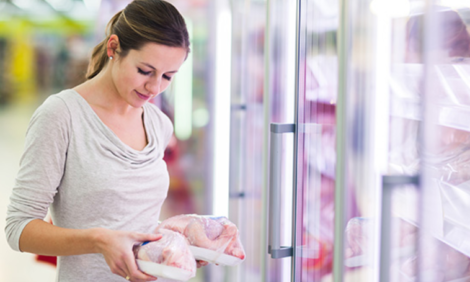



Certified Humane designation granted to first farms in Southeast Asia
Consumer demand sparks first Certified Humane chicken and egg products raised and sold in Southeast AsiaConsumers around the world are asking more questions about the origin of their food, including how animals are raised on farms. At the press launch, attendees learnt about the certification scheme from local producers, the regional and global movement towards higher welfare production systems, and Humane Farm Animal Care and Humane Society International’s work in these areas.
Three Southeast Asia farms have earned Certified Humane designation from Humane Farm Animal Care (HFAC), the leading international nonprofit certification programme whose mission is to improve the lives of farm animals in food production. The farms are in Malaysia and Singapore:
- Toh Thye San Farm, from Johor, Malaysia has certified its production of GG French Poulet chickens sold mostly to consumers in Singapore
- Liang Kee Farming, an hour North of Kuala Lumpur has certified its free-range eggs
- Chew´s Agriculture, from Singapore, has certified its cage-free egg laying hen houses
They are among the newest producers and farmers to join the Certified Humane programme, which requires farmers to adhere to HFAC’s Animal Care Standards and undergo third-party inspections to confirm compliance for consumers.
Among other things, HFAC’s Animal Care Standards requires that:
- Farm animals be fed nutritious diets without antibiotics, growth promoters and animal by-products,
- Receive proper shelter, resting areas, and sufficient space to support natural behaviors.
Just like every other animal, farm animals, including chickens or laying hens, deserve to have their emotional and physical needs met and be raised in a way that allows them to express natural behaviors throughout their lives.
HFAC works to improve the lives of farm animals by driving consumer demand for kinder and more responsible farm animal practices.
“With the Certified Humane label on the packaging of animal products the consumers in Southeast Asia can finally have a choice, and buy products from farms that care about the way animals are raised,” says Luiz Mazzon, HFAC Director in charge of the regional operations. “With our new team of local inspectors we are able to perform inspections in farms from Thailand, Malaysia, Singapore, Indonesia, Vietnam, and all neighboring countries,” says Luiz.
Certified Humane products are currently available in 55,000 stores in many countries, including the US, Argentina, Australia, Brazil, Canada, Chile, Colombia, Mexico, New Zealand, Peru and now Singapore and Malaysia.
Since HFAC launched in May 2003, more than 200 companies, representing 6,000 farms and 1 billion farm animals, have joined the programme. Endorsed by over 70 animal welfare and humane societies, the Certified Humane programme is known worldwide for certifying farm animal welfare, from birth through slaughter.
For more information on HFAC and the Certified Humane label, visit www.certifiedhumane.org.









